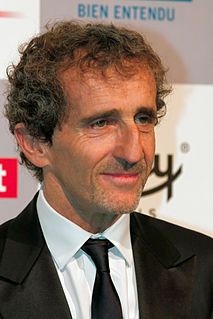A Quote by Neil Postman
Technology always has unforeseen consequences, and it is not always clear, at the beginning, who or what will win, and who or what will lose.
Quote Topics
Related Quotes
You will always go into that tent. You will see her scar and wonder where she got it. You will always be amazed at how one woman can have so much black hair. You will always fall in love, and it will always be like having your throat cut, just that fast. You will always run away with her. You will always lose her. You will always be a fool. You will always be dead, in a city of ice, snow falling into your ear. You have already done all of this and will do it again.
However good an English team is, they will always have an additional advantage. It is that European players know that their English opponents will come at them in the belief they will win, and they can always be guaranteed never to stop fighting. They have a natural aggression that they are born with. If it ever goes, English football will lose its most valuable dimension.
In stories, everything has to have clear consequences and everything has to focus to the end. Everything at the end will give meaning to everything that precedes. In my own life, the consequences of the choices I've made aren't always very clear. The most beautiful things are sometimes not totally truthful, and the end will not give more meaning to everything that precedes.
We're going to fight this battle with everything we have, and we will probably lose. But then we will fight it again, and we will lose a little less, for this battle will win us many supporters. And then we'll lose *again*. And *again*. And we will fight on. Because as hard as it is to win by fighting, it's impossible to win by doing nothing.
The real things to know is that folks will stand to lose more than they will to win. That?s the most important percentage there is. I mean, if they lose, they?re willin? to lose everything. If they win, they?re usually satisfied to win enough to pay for dinner and a show. The best gamblers know that.
You can't become a winner overnight, or even in a couple of years-it takes time... You will lose races and you will have to accept that, learn from it and believe that you'll win the next one, knowing that you'll probably lose that as well. All the time you have to keep believing that one day you will win.
We talk in coaching about "winners" - kids, and I've had a lot of them, who just will not allow themselves or their team to lose. Coaches call that a will to win. I don't. I think that puts the emphasis in the wrong place. Everybody has a will to win. What's far more important is having the will to prepare to win.



































